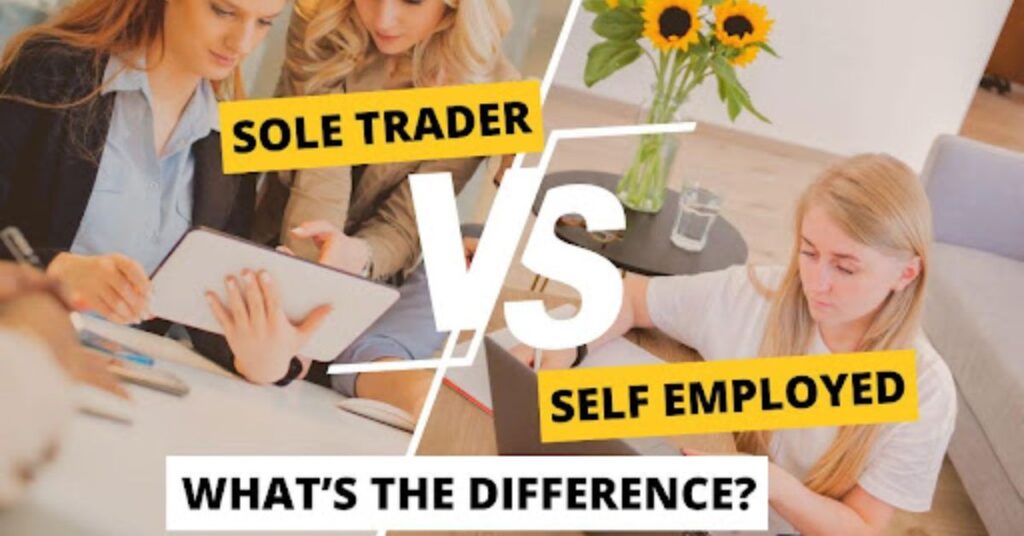If you’re starting your own business or working for yourself, you’ve probably come across the terms sole trader and self-employed. But what do they actually mean? Are they the same thing or is there a difference? Let’s clear up the confusion and help you understand which one applies to you!
What is a Sole Trader?
A sole trader is one of the simplest business structures in the UK. It means you’re running a business as an individual, rather than as a company or partnership. As a sole trader:
- You own and run your business by yourself.
- You keep all after-tax profits.
- You are personally responsible for any business debts.
- You must register with HM Revenue & Customs (HMRC) for Self Assessment to report your income and pay tax.
- As a sole trader you do not need to register your business with Companies House.
Key Features of a Sole Trader Business
✅ Simple setup – Registering with HMRC is quick and easy. ✅ Less paperwork – No need to file company accounts with Companies House. ✅ Full control – You make all decisions without consulting directors or partners. ✅ Tax simplicity – You pay tax through Self Assessment, based on your profits.
However, a sole trader is not a separate legal entity, meaning you are personally liable for any debts the business incurs.
What Does It Mean to Be Self-Employed?
Self-employed is a broader term that refers to anyone who works for themselves rather than being an employee of a company. This can include:
- Sole traders
- Freelancers
- Contractors
- Business owners (including limited company directors)
Essentially, if you work for yourself and earn money outside of PAYE employment, you are classed as self-employed. However, not all self-employed people are sole traders!
Key Differences Between Sole Trader and Self-Employed
| Feature | Sole Trader | Self-Employed |
| Definition | A specific business structure where an individual runs a business alone. | A broad term for anyone earning independently. |
| Legal Status | Legally the same as the business. | Not a legal structure – simply means you work for yourself. |
| Tax Status | Pays tax through Self Assessment. | Pays tax through Self Assessment but may use other business structures. |
| Can Have Employees? | Yes, a sole trader can hire employees. | Depends on the business structure (e.g., a freelancer may not). |
Are All Sole Traders Self-Employed?
Yes! All sole traders are self-employed, but not all self-employed individuals are sole traders.
For example:
- A freelance graphic designer working for multiple clients is self-employed but might operate as a sole trader.
- A self-employed consultant who has registered a limited company is still self-employed but not a sole trader.
- A shop owner running their business alone is both self-employed and a sole trader.
Which One Applies to You?
- If you run your own business alone and haven’t set up a company, you are a sole trader.
- If you work for yourself but operate as a limited company director or partner, you are self-employed but not a sole trader.
- If you freelance, contract or earn independently, you are self-employed (whether you register as a sole trader or use another business structure).
How to Register as a Sole Trader
If you decide that being a sole trader is the right path, you must:
- Register as a sole trader with HMRC for Self Assessment – Do this by 5th October after the end of the tax year in which you started trading.
- Keep proper records – Track income, expenses, and invoices.
- Submit an annual Self Assessment tax return – Pay Income Tax and National Insurance on your profits.
📌 Tip: Even if you earn less than £1,000 a year, you may not need to register, but it’s a good idea to keep records in case your income grows.
Final Thoughts
The terms sole trader and self-employed are closely linked but not identical. Being self-employed simply means working for yourself, while being a sole trader is a specific business structure under self-employment. Our experienced team can also register a sole trader business for you, taking the uncertainty out of starting your new venture.
If you’re still unsure about the best way to structure your business, get in touch today to discuss your options and make sure you’re set up for success.







